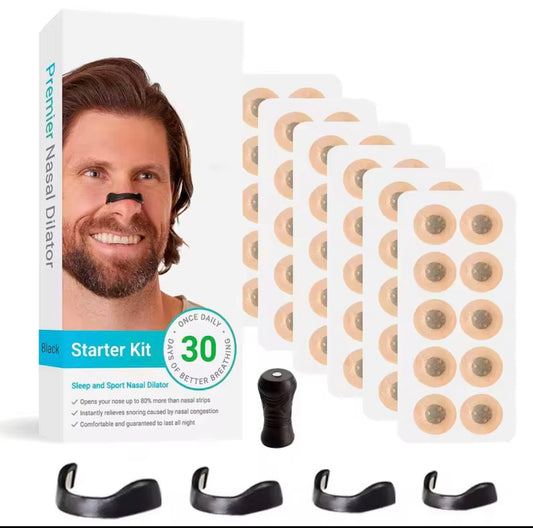Why You're a Light Sleeper (and What You Can Do About It)
A few years ago, when I was hopelessly in the midst of my sleep struggle and had accepted that this may be my reality for the rest of my life, I stumbled across an article online that changed everything.
It explained something so simple, yet so freeing: some people are just light sleepers. Sensitive to sound, light, temperature, or even their own thoughts — and that’s not a flaw. For many of us, our nervous systems are naturally more alert. We’re not broken or dramatic, just wired a bit differently.
That article helped me understand that my sleep wasn’t "bad", it was sensitive. And instead of fighting it or blaming myself, I learned how to work with it.
I hope this can be that article for someone else.
What Does It Mean to Be a Light Sleeper?
Light sleepers wake easily, sometimes from the slightest noise, a sliver of light, or even subtle shifts in their own body. Unlike deep sleepers who drift through loud alarms or bright rooms, light sleepers cycle through lighter stages of sleep more frequently and may not get enough restorative deep sleep (also called slow-wave sleep).
This can lead to:
-
Fatigue despite a full night in bed
-
Waking up multiple times per night
-
Difficulty falling back asleep
-
Feeling groggy or anxious in the morning
Why You Might Be a Light Sleeper
There are several reasons you might wake easily during the night:
-
Biology & genetics – Some brains are simply more alert, even during sleep.
-
Stress & anxiety – When your nervous system is on edge, your sleep becomes more fragile.
-
Environment – Light pollution, street noise, snoring partners, or even the hum of electronics can keep you from staying asleep.
-
Hormonal changes – Many women report becoming lighter sleepers during menstruation, pregnancy, or menopause.
How to Sleep Better as a Light Sleeper
The good news? There are natural tools and routines that can significantly improve sleep quality — even for the lightest sleepers.
1. Block out light
Light, even a little, can interrupt your melatonin production. Use a high-quality silk sleep mask (like ours at Napture) to gently block out light while being kind to your skin.
2. Silence the world
Earplugs can be a light sleeper’s best friend. Choose ones designed to block ambient noise without discomfort, so you can sleep through the night without disruption.
3. Calm the senses before bed
Light sleepers benefit from relaxing rituals: think herbal tea, warm baths, or calming playlists. Our weighted blankets(coming soon!) and sleep care cards can help soothe your system into a state of rest.
4. Stay consistent
Go to bed and wake up at the same time every day. Yes, even on weekends. Your body thrives on routine.
Being a light sleeper doesn’t mean you’re destined for a life of exhaustion. With the right environment and gentle support, sleep can become something you look forward to — deeply restful, beautifully natural.
You’re not alone in this. And you don’t need to suffer in silence.
Discover more sleep-friendly tools at www.napture.net and follow us on Instagram @napture_sleep_better for calming tips and expert advice.
Napture – Sleep better, naturally.




